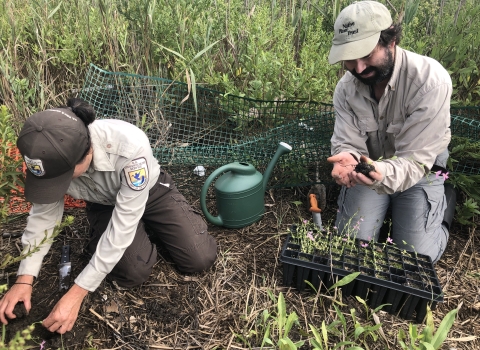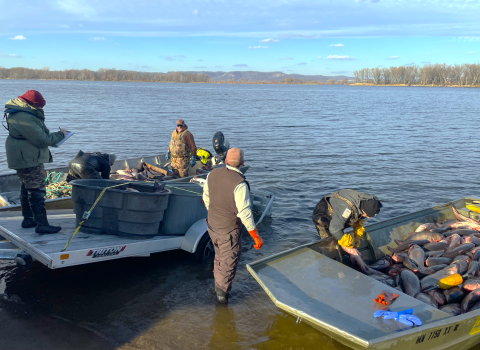Erwin National Fish Hatchery (ENFH) is located in Unicoi County in eastern Tennessee. Established in 1897, ENFH has served as a coldwater salmonid production (fish or eggs) since its inception. Currently the hatchery plays a key role in supplying disease free salmonid eggs as part of the United States Fish and Wildlife Service (USFWS) National Broodstock Program. ENFH is responsible for providing nearly 16,000,000 disease free inland salmonid eggs to federal, state, and tribal partners annually. In 1897 the current site was determined to be the best location in the state due to the large high quality spring (Tapp spring) located on the grounds. In a report to the 1897 United States Congress the United States Fish Commission reported “For the new station in Tennessee, authorized by act of Congress approved August 8, 1894, after examination of various localities throughout the state a site was selected in Erwin, Unicoi County, which appear to combine all the important features necessary for a fish cultural station, there being ample supply of cold spring water, railroad connections, and facilities for collecting brood fish and eggs.” The spring mentioned in the report to congress has supported the hatchery’s activities for over 120 years and thanks its consistent supply of high quality cold water this facility has been able to thrive and support recreational fishing on a national scale. Protection of this spring is essential to continued success of ENFH. In 1897 the agents selected the current site for its fish producing potential and proximity to the railroad, they unknowingly selected a site that lies within one of the most biologically diverse ecosystems on the planet.
Over the course of 2021, thanks to partnership with TennGreen Land Conservation Agency and support from Kentucky and Tennessee Ecological Services Field Offices, two tracts consisting of over 17 acres have been purchased and will soon be added to Erwin NFH’s boundary. This forested land contains an artesian spring important for the groundwater recharge of the spring that is the Hatchery's sole source and will be protected from development in perpetuity. While the land is now protected from housing development it will be used by the service to showcase ongoing efforts to educate the community about imperiled bats and their importance in the southern Appalachian ecosystem. The Service's Kentucky and Tennessee Field Offices worked with their partners that oversee the Tennessee Imperiled Bat Conservation Fund and the Kentucky Aquatic Resources Fund to secure the funding necessary for these acquisitions.
“The lifeblood of any fish hatchery is its water supply. Erwin National Fish Hatchery has been in continuous operation for over 120 years thanks to the cold, clean water flowing from our source spring”
—Tyler Hern, Hatchery Manager, Erwin National Fish Hatchery




